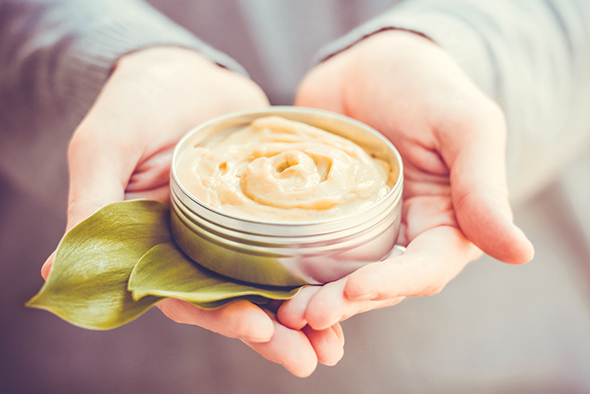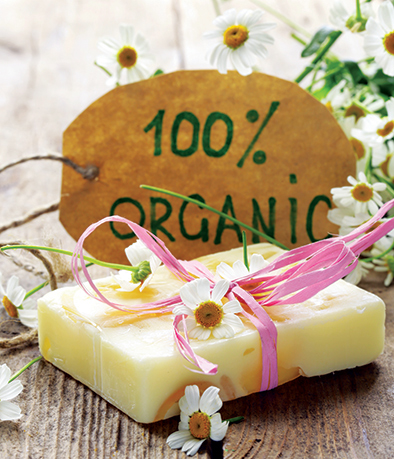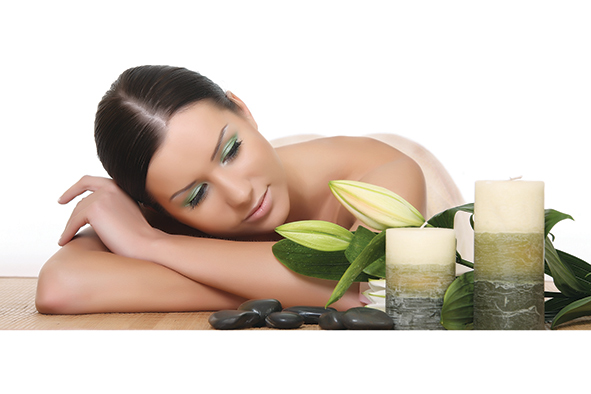With the many touted benefits about anything organic, it’s not surprising that people are increasingly choosing organic make-up. But experts caution the excessive use of these products too.
Here are some facts you need to keep in mind while using organic make-up.
If you need to use make-up daily, you need to know that over time, its regular use can affect you negatively. The chemicals present in most make-up products available in the market today can take away the natural glow and health of your skin, thus compelling you to become dependent on these products. A vicious cycle, indeed!
Organic make-up is safer than regular make-up, thanks to it not containing harmful chemicals like lead and mercury. Also, it works for those who seek fragrance- and artificial-colour-free make-up products.
But experts agree that replacing regular make-up with organic ones can be the first step towards helping you regain your lost glow, even as they advice caution in using them. Read on, as Mumbai-based dermatologist Dr Madhuri Agarwal shares insights about the benefits of organic make-up and the precautions to be taken with them.

Sensitively yours
With all the natural ingredients infused in them, organic make-up products are chemical-free and thus hypoallergenic.
• One can even use these products every day, as they are not as harsh on
the skin as regular make-up—undoubtedly a blessing for those with allergic tendencies.
• Also, given that most organic make-up products are made using natural vegetable and other essential oils, they have a hydrating effect on one’s skin.
Meriting a rethink
Of course, there are demerits to organic make-up, but comparatively, they are easy to live with.
• To begin with, it is more expensive than your regular make-up.
• In addition, as they are exclusive products, organic make-up is not easily available at stores. Also, they are usually available in limited colours, as they are made of vegetable pigments. Add to it all, organic make-up products have a shorter shelf-life, as they are free of preservatives.
• If you already own these products, you will find yourself reapplying organic make-up products more frequently, as they tend to wear out in a few hours. This happens because the products do not have lead
in them.
• Also, the creamy base of most organic make-up products makes it difficult to blend into the skin.
• These products even take longer than regular make-up to get used to on the face, especially if you have oily skin.
Store trouble
Being made of natural food and plant extracts, organic make-up products do not have preservatives in them, and tend to spoil faster than regular make-up and have high chances of being contaminated with bacteria.
More often than not, most products have an arbitrary expiration date. Mascara, eye-shadow, blush and foundation have a shelf-life of about 3–6 months, while a lip balm can last for up to a year.

Things to look out for while buying organic make-up
- Ensure that the organic make-up product you use is of a reputed brand. Most brands mention whether or not their products are certified, gluten-free and vegan, and not tested on animals. Normally, the standard American institute that approves the quality of these products is United States Department of Agriculture (USDA).
- Look for brands that are safe and do not contain harmful toxins in them. A good cosmetic brand will list down its ingredients on the package. It is probably not a good idea to trust any cosmetic product that calls itself organic, natural or eco-friendly, if it does not mention its ingredients on the label.
- If you find make-up products with no expiry date written on them, write the date of purchase on the product, with a permanent marker. This will give you an approximate idea of when to discard them. Alternatively, you may also check the brand’s website for the expiration date of the product.
- Choose organic cosmetic brands that are free of harmful preservatives such as parabens,
sodium lauryl sulphates and phthalates, as they can be harmful to your skin, causing irritation and skin infections. - You will notice that the ingredients listed for these cosmetic products include organic essential oils and vegetable oils, not chemicals and preservatives.


